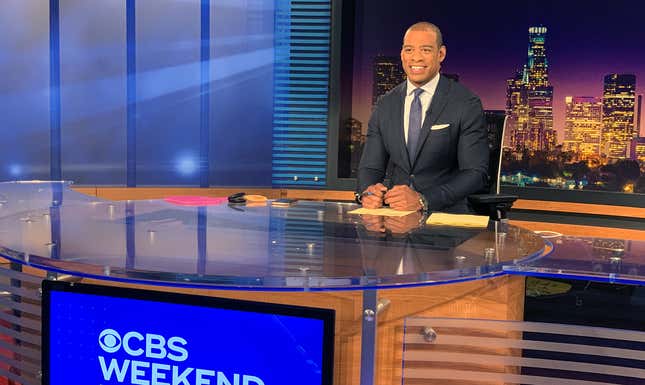
Historically Black Colleges and Universities, also known as HBCUs, are institutions that have played a major role in bettering the lives of millions of students while celebrating and centering Black culture, history, and accomplishment.
I recently had the honor to sit down with DeMarco Morgan, a broadcast journalist who’s anchored national news in various markets across the country, most recently at KCBS in Los Angeles, and is an HBCU graduate from Jackson State University. This discussion was inspired by Home Depot’s Retool Your School Campus Improvement Grant Program, which has provided over $5.2 million dollars in campus improvement grants to help HBCUs make sustainable improvements to their campuses, which DeMarco’s alma mater, Jackson State University, has been a recipient of since 2018. We discussed DeMarco’s career journey, the impact attending an HBCU had on his life, and why it’s important to continue to invest in HBCUs in the future:
(the following interview has been edited for grammar and clarity)
Christina Blacken: I know you grew up in Tulsa Oklahoma, but what was your first exposure to HBCUs? Did you learn about them in childhood, from your family, or later in life?
DeMarco Morgan: It was later in life. I knew about HBCUs from watching A Different World and Spike Lee’s School Daze. I think you’re a bit younger than me so don’t know if you know those shows.
CB: Oh, A Different World was my Jam growing up!
DM: Right?! Those stories highlighted the different fraternities and sororities and the pride in Black culture, I mean who didn’t want to go to schools like that?
CB: Given your later exposure to HBCUs, what motivated you to choose Jackson State University for your college experience?
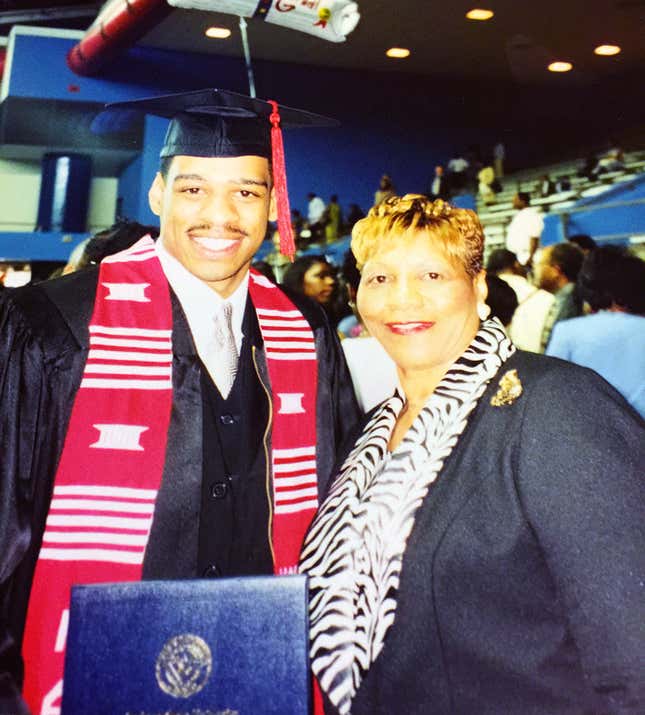
DM: I like to say that I didn’t choose Jackson State. Jackson State chose me. I applied to more than a dozen colleges and universities, and I was denied acceptance to all of them except Jackson State. In high school I was in Student Council, Red Cross, TV production classes, the marching band, I was very active, but I just wasn’t applying myself and pushing myself in the areas that I needed to, I scored low on the ACT standardized test.
Jackson State chose me and gave me an opportunity. When I got to campus, I found an English teacher who mentored me with my writing and storytelling skills and I was able to stay on the Dean’s list for all four consecutive years in college.
CB: Standardized testing is super discriminatory and has been critiqued for various biases. It doesn’t mean someone isn’t smart if they don’t test well. Jackson State giving you a chance, that’s incredible, because there are a lot of schools that don’t do that at all, and have very rigid ideas about who should be in the school and who shouldn’t.
How did going to an HBCU like Jackson State affect your career?
DM: I’ve always known that I wanted to be on TV since I was in the second grade, particularly after watching the Space Shuttle Challenger and Dan Rather on the news in 1986.
I had an English teacher in high school who said I was better off finding something to do with my hands, because I don’t speak well or write well, and I needed to know how to do both in order to be on TV.
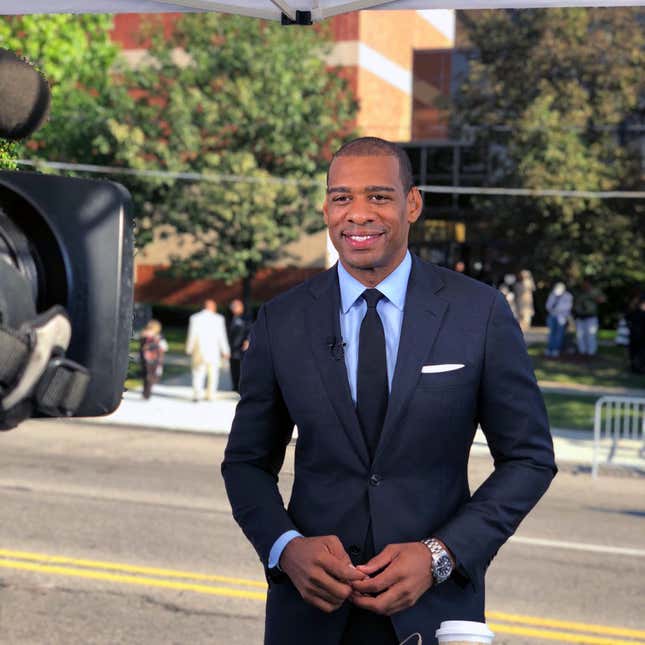
When I got to Jackson State they nurtured me and they saw what I wanted to do, and they pushed me to it. We had this one Astro van with cameras and I got an opportunity to actually get in that van and go to the state capitol and learn politics and cover stories. I had the best teachers and people pushing me toward my goals and my dreams.
I eventually interned at Channel 12, in Jackson, Mississippi, then got a job there and ended up producing once or twice a month for the station, then got accepted to Columbia University’s journalism school and interned with Dan Rather and 48 hours, and the rest is history. None of that would have been possible without Jackson State saying yes to me, and that’s the story of our HBCUs.
CB: What did you love the most about attending Jackson State University? Was it the culture, late night snacks, or as Jagged Edge says, where the party at?
DM: Yes!! As far as culture, it doesn’t get any better than Jackson State. Jackson State taught me everything, from being proud of who I am to the good soul food we had every Wednesday to our football games which averaged more than 40,000 football attendees at the stadium. And our marching band!
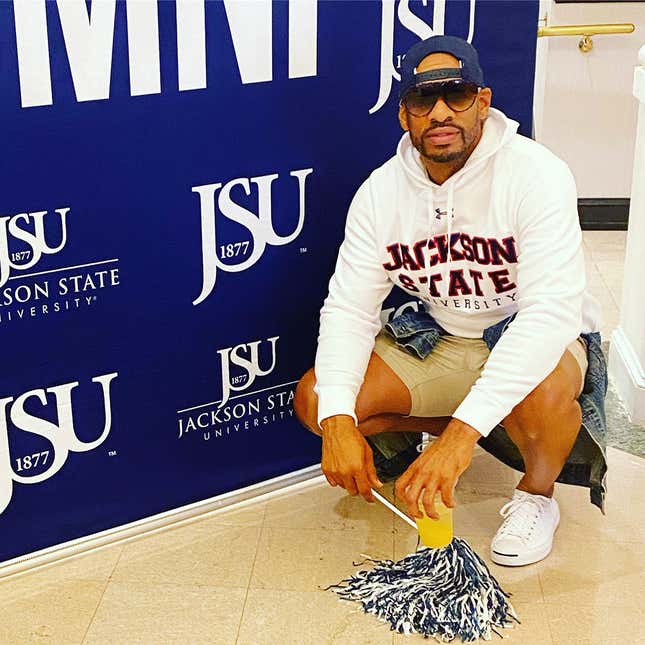
CB: As someone who didn’t attend an HBCU for college I was so jealous every time I would watch videos of the Jackson State Sonic Boom band aka the Boom. I was like I am missing out!
DM: I remember being on campus back in Jackson State and at the end of the day, when they would finish up practicing, you’d be studying and The Boom would come marching through the yard, heading back to the marching band room from the practice field; and everybody’s running out their dorms, literally just breaking it down dancing in the middle of campus and it just turns into one big party every single night after the Boom is done practicing. Where else can you get that?
CB: There’s this ongoing debate about the importance of HBCUs and if they’re even still needed anymore. What do you think is the reason we need to keep investing in HBCUs, particularly, not only for the Black community, but for the country as a whole when it comes to an educational experience?
DM: I was one of the lucky ones who was saved, and that happened to me because of an HBCU. Imagine the number of DeMarcos out there who have yet to get that chance because they don’t have the exposure or because they don’t have anyone that’s pushing them, believes in them, or affirms them? Sometimes that’s all it takes is somebody showing you that they care about you, that they believe in you, and that they are also like you. HBCUs have some of the best educators, energy, and pride. It really feels like one big family reunion. There’s a nurturing and affirming experience HBCUs provide to Black students that is hard to replicate anywhere else, and is so important to their development as well as their well being while going through the challenges of a college experience.
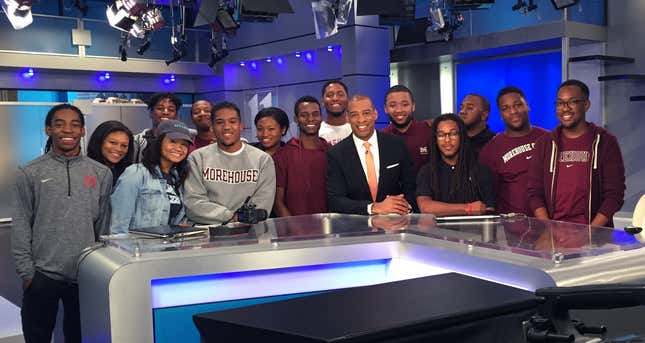
I also think it’s important not just that we go to HBCUs but that we give back to them as well, whether financially or teaching and donating your time. I’ve taught at Morehouse, Clark Atlanta, Spelman College, Jackson State, and Milwaukee Area Technical College. In just about every market that I’ve worked in, I’ve tried to teach and give back to the students just to let them know that hey, it is possible.
Like I said, in the second grade, you got this little Black boy with a Jheri curl in Tulsa Oklahoma, living in the hood, watching Dan Rather deliver breaking news and then 30 something years later that little boy is in New York City in the same studio, in the same room. That story can only happen because of HBCUs like Jackson State, and I’m grateful.
To learn more about what The Home Depot is doing to support HBCUs, check out the Retool Your School Program now in its 13th program.
Christina Blacken is a writer, performer, and public speaker on the topics of inclusive leadership and culture change, and is the founder of TheNewQuo.com, a leadership development and inclusion consultancy.

